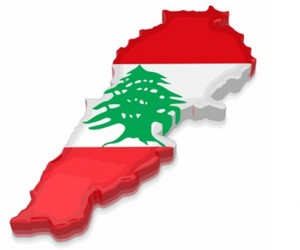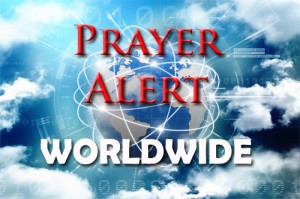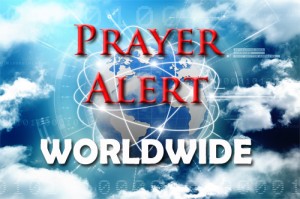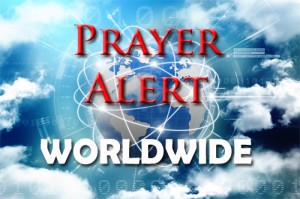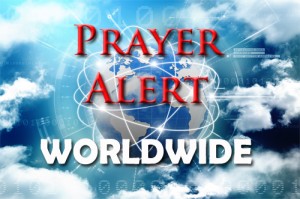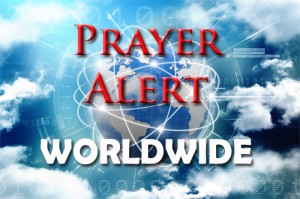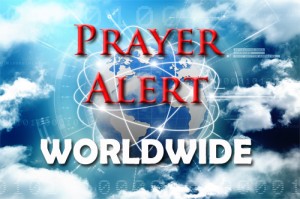Displaying items by tag: Middle East
Uncertainty in Lebanon and the Middle East
Many people from around the world are contacting us to ask about the situation in Lebanon.
Lebanon is living under uncertainty; many people are living in fear and news of an imminent war is the talk of the town. On the 4th of November the Lebanese prime minister surprisingly presented his resignation while in Saudi Arabia. This came as a shock to everyone as no one, not even the president or high officials from his own political party knew about that. This is creating lots of suspicion that he is placed under house arrest in Saudi Arabia and that he is part of a political deal that will be put in effect shortly
The Lebanese president has requested international assistance for the release of the prime minister and while many tried to interfere it is to no avail.
The real problem is the escalating tension between Iran and Saudi Arabia and the fear is that Lebanon will be a proxy nation where the Sunni/ Shiite war will take place (same as what is happening with Yemen)
What about the prophetic role and the destiny of Lebanon? We believe that Lebanon is the door to the Middle East and that it is the place from where Christianity will spread to the whole Middle East. The church of Lebanon is used by God now to bring the gospel to countless number of refugees in the land and many are receiving gospels and are now believers in Jesus Christ who died for their sins.
We are first hand witnesses of God’s movement. This may not be the way we ever envisioned that the gospel will go forth but God’s ways are so different than our ways
Fear is rising and threats are real. Already, one in three people in Lebanon is a refugee and poverty is increasing among the Lebanese so a new war whether it is economic, political or military will be disastrous on the nation.
As far as we are concerned, we are continuing reaching out to people in need, restoring childhood to children and educating the leaders of tomorrow. we are still having several bible studies going on with refugees and we are still working out details of camp rent with the owner trying to put demands on him and trying to work a 6 months contract renewable if we see the situation needing us to stay there. We are also still going into Syria preparing for the return of Syrians there
Prayer requests
- That our prime minister would come back to Lebanon
- That our president will be strong and wise in his dealing with the present threat
- That Lebanon will not be used as a proxy nation for nations to settle their conflict
- That Syrians will go back into their own land safely
- That we will be ready for emergency response if needed
- That hearts will be open to the gospel of peace as it is so much needed now
The nations are in an uproar and the kings of the earth plot against the anointed one, they take their stand and take counsel together against the Lord, but the one who sits on the throne laughs at their rebellion - Psalm 2.
We are very happy to know that you are praying for us, for our nation and for the whole Middle East. Jesus is setting the stage for His return and we can’t but pray: come Lord Jesus Maranatha!
Thank you for your love, your care and your support.
A Lebanese Prayer Leader Friend of IPC
Israel: Aid for Syrian refugees
UK documentary director David Cohen filmed Israel's humanitarian work treating victims of Syria's civil war. ‘Love Your Enemies’ was premiered at a special Westminster screening. It featured interviews with medics and patients of pioneering surgery on horrific wounds at hospitals in Western Galilee. The film was enthusiastically received by an audience including former Cabinet Minister Stephen Crabb, Labour’s Ian Austin, Andrew Percy MP, and Israeli deputy ambassador Sharon Bar-li. But in a question and answer session following the hour long film Mr Cohen revealed that discussions with the BBC and Channel 4 over purchasing the film had so far proved fruitless. Israel and Syria are two enemy states, however a young Syrian patient said, ‘we are taught that Israel is the enemy – but all I have seen here is humanity.’ Unfortunately a documentary showing ground-breaking medical relief treatment of 4000+ Syrian war victims was considered ‘too Zionist’ for mainstream British television.
Bedouin: week of prayer
The Bedouin are traditionally Arabic-speaking nomads who live in tents throughout the deserts of the Middle East. In recent decades many have settled into small villages within their tribal territories while continuing to shepherd herds of goats, sheep, and sometimes camels. Culturally they have stronger ties to their families, tribal customs, and traditions than with conservative Islam - though all would declare themselves Muslim. They are very cordial. Even the poorest family will offer a cup of tea or coffee to their guest. Often behind that generosity there is a family suffering from degrees of brokenness and hopelessness. Desert life is difficult. They accept their fate ‘ordained by God and unchangeable’. Because they live in remote areas, they are hard to reach and many have never met a Christian; however, what may seem impossible for us is possible for God. Pray for the Lord to send His rain to soften the dry ground of people’s hearts, sending dreams and visions for people to talk about.
Bahrain wants religious tolerance
For many years intercessors have prayed that Christian persecution would be replaced by interfaith tolerance. Recently the king of Bahrain took unprecedented action in the Middle East North Africa (MENA) region and issued a declaration of interfaith tolerance that he believes will promote similar action in other MENA nations. Muslim, Christian and Jewish scholars reviewed the king’s declaration and hope it will gain sign-offs globally from leaders of all faiths. Individual religious freedom is specified as one of the five points in the declaration. Terrorism, suicide bombing, sexual slavery, inciting extremism, and the abuse of women and children are specifically disowned. Preaching hatred and violence in the name of God is condemned as a desecration of His name. The king has also promised to build a museum of tolerance.
Israel: significant anniversaries
In 1867, two visitors to Ottoman Palestine separately showed that Palestine had declined since the Jews had left. First a British archaeologist, Charles Warren, conducted major excavations of Jerusalem’s Temple Mount and found relics of King David’s city; then American writer Mark Twain, after visiting the Holy Land, wrote a hugely popular travel memoir entitled ‘The Innocents Abroad, or the New Pilgrims’ Progress’. In 1917 the British defeated the Ottoman Empire and took control of Palestine. On 2 November 1917 they issued the Balfour Declaration pledging to support the establishment of a Jewish national home in the territory. In 1948, Zionists drove the British out of Palestine and founded the state of Israel. Then, when Israel captured eastern Jerusalem and its holy sites from Jordan in the 1967 Six-Day War, some claimed the messianic era was nigh.
I kill in the name of religion, you love in the name of Jesus
Paul, a convert from Islam, now works distributing food to newly-arriving Syrian refugee families. Recently, he gave out the last food package he had for the entire month. The lady next in line started crying when she realised there was none left for her family. She told Paul that she and her children were desperate. Paul said they were out of food packages, but offered to pray for her. He also told her how he came to Jesus. As they finished praying, Paul’s phone rang with the unexpected news that another 35 food portions were available. The mother, full of wonder and gratefulness, praised God for how Jesus had answered their prayer. A few weeks later, her husband (who had been fighting with IS) came to meet Paul. He said, ‘I heard what you had done for my family. I thought about how I was in Syria killing people in the name of religion, but you love in the name of Jesus. I left the other fighters to come and meet the man who loved my family, and to learn about Jesus from you.’
Balfour Declaration centenary
Prime Minister Theresa May hosted her Israeli counterpart, Benjamin Netanyahu, to mark the centenary of the Balfour Declaration. It was a British pledge that paved the way for Israel's creation by supporting a Jewish national home in Palestine. Israel and Jewish communities view the pledge as momentous, while Palestinians regard it as an historical injustice. The UK has rejected calls to apologise for their actions and support of Israel as a nation and has said it is proud of its role. Mr Netanyahu had dinner with Mrs May and the shadow foreign secretary Emily Thornberry. Labour leader Jeremy Corbyn, a long-time critic of Israeli policy towards the Palestinians, declined an invitation to attend. The Balfour Declaration was meant to bring peace between two peoples, but 100 years later there is still no peace.
Iran: weapons-grade uranium warning
Ali Akbar Salehi, Iran’s nuclear programme chief, said on 29 October that Iran can begin producing weapons-grade nuclear material quickly if the nuclear deal with foreign powers fails, and insisted that international inspectors would not be given access to Iranian military sites. In early October President Trump told the world, ‘Iran is not in compliance with the deal, and it needs to be renegotiated even though our allies, and even our enemies, do not agree.’ Mr Trump said that the agreement had not curbed Iran’s missile programme and destabilising activities in the Middle East. Mr Salehi said that, although Tehran prefers to keep the agreement intact, they could quickly ramp up uranium enrichment to produce 20% enriched uranium in four days. He made these comments after meeting the director of the International Atomic Energy Agency, Yukiya Amano. Mr Amano also met President Rouhani and foreign minister Mohammad Javad Zarif. See
Jordan: slavery
Jordan is a destination for women and men from south and southeast Asia for the purpose of forced labour. There have also been reports of women from Morocco and Tunisia being subjected to forced prostitution after coming to work in restaurants and night clubs. Women from Bangladesh, Sri Lanka, Indonesia, and the Philippines migrate willingly to work as domestic servants, but some are subjected to conditions of forced labour, including restrictions on movement, withholding of wages, threats, and physical or sexual abuse. $90 is the average cost of a human slave. Pray for Malays and others from different nationalities who get trapped into forced labour. Pray for God to open the eyes of the world to this enormous issue that is happening in Jordan and the surrounding countries.
Syria: the refugee ‘highway’
For three weeks in November, a team will be traveling along the refugee trail through Europe. They will be posting first-hand stories and sharing from their experiences as they travel from Greece to Northern Europe. They hope that their account of travelling alongside the refugees will inform us all how to pray more specifically and continue to advocate for the Syrians and other peoples from the Levant region. People can follow along, through the stories they will post online and pray with up-to-date insights by clicking on the ‘More’ link. Syria remains a nation in devastation as war and violence continues.
